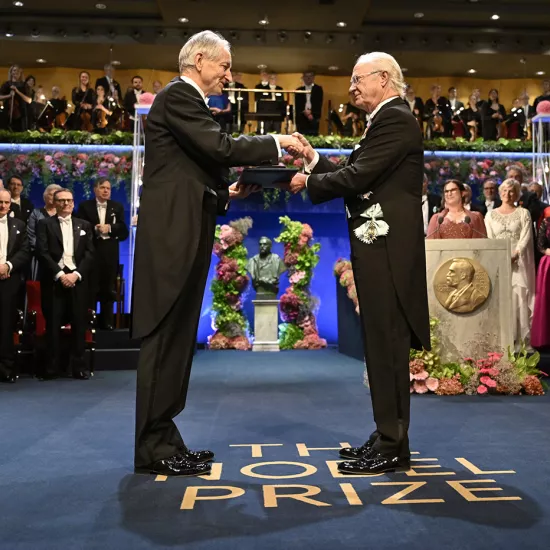UTM in the community: Sociology symposium showcases student research

Students from U of T Mississauga’s sociology, criminology and law and society courses showcased their research at an experiential learning symposium on Monday, April 3. The half-day event featured presentations by eleven undergraduate students who spent several months working with local organizations to conduct independent research projects on diverse subjects such as youth engagement programs, Great Lakes pollution and sex trafficking and more.
“It’s about that link between academic research and the public,” says sociology professor and department chair Anna Korteweg. “Our students learn the value of their skills beyond the classroom, and our community partners benefit from having brilliant students doing research that they may not otherwise have time for.”

Several projects focused on how young people access services and supports in Mississauga and Peel Region. Working with at-risk youth program Citizens for the Advancement of Community Development, Elizabeth Adesha investigated how community centres in Peel address high school dropout rates for black youth. Four students—Jamilah Dei-Sharpe, Desiree Kaunda-Wint, Mona Kirimi and Annabel Oromoni worked with the City of Mississauaga’s Recreation Division, studying 150 youth-based organizations to assess opportunities for play and gaps in funding for neighbourhood initiatives.
Rukiya Abdulle worked with Environment Canada to investigate how to best encourage farmers to reduce phosphorus pollution in Lake Erie. Angela Leung investigated cultural barriers for international students who access counseling through UTM’s International Experience Community office.

“These placements provide an enriching experience to integrate what students have learned in the classroom, and to discover the possibilities for using the academic knowledge in the field,” says Professor Paula Maurutto, noting that the group that worked with Mississauga’s Recreation Department will continue the project with the development of a new database of youth services, which is to be created through UTM’s Peel Social Lab.
“The Peel Social Lab will build on these experiences to integrate research into the classroom and the outside world,” Korteweg says. “It’s in the early stages, but it’s about getting that research out to the larger public.”



